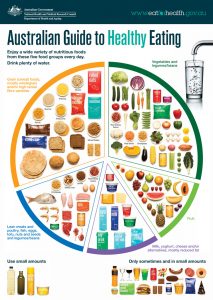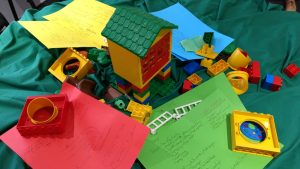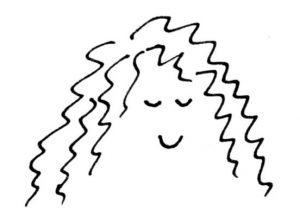
This blog post summarises some of the information shared in a recent ROUND THE TABLE mini-workshop. To sign up for information about future workshops, click here: https://www.condamineassist.com.au/wp/mailing-list-sign-up/
Buildings don’t stand up for long without a strong foundation. Mental health and wellness are no different. By strengthening the foundation stones, we create greater resilience so that when life gets tough, we’re better able to weather the storms without crashing down.
 So, what are these foundation stones of wellness? There are four main foundation stones that I work on with my clients as well as in my own personal life. Each of the stones support each other – they are interlinked – and they are a fabulous place to start building or renovating wellness at any time! The foundations are based on solid evidence that is routinely used in the mental health sector.
So, what are these foundation stones of wellness? There are four main foundation stones that I work on with my clients as well as in my own personal life. Each of the stones support each other – they are interlinked – and they are a fabulous place to start building or renovating wellness at any time! The foundations are based on solid evidence that is routinely used in the mental health sector.
1. Movement
The latest Physical Activity and Sedentary Behaviour Guidelines can be found here:
 Basically, people are designed to move … a lot. When we don’t move enough, we are at greater risk of switching into a depressed or anxious state. It’s simple biology. Get moving, get active, get off the sofa, and move as much as you can and often as you can. For most of us it’s recommended to aim for about an hour of moderate intensity exercise or activity each day, and limit our screen time to 2 hours per day. The combined mental and physical health benefits of exercise / activity cannot be replaced by any medication. If you are in pain, or have limited movement, injuries, or chronic disease, the best idea is to do what you can. Remember always check with your doctor or health professional if you have any concerns about your health, exercise, and resting needs.
Basically, people are designed to move … a lot. When we don’t move enough, we are at greater risk of switching into a depressed or anxious state. It’s simple biology. Get moving, get active, get off the sofa, and move as much as you can and often as you can. For most of us it’s recommended to aim for about an hour of moderate intensity exercise or activity each day, and limit our screen time to 2 hours per day. The combined mental and physical health benefits of exercise / activity cannot be replaced by any medication. If you are in pain, or have limited movement, injuries, or chronic disease, the best idea is to do what you can. Remember always check with your doctor or health professional if you have any concerns about your health, exercise, and resting needs.
 2. Sleep
2. Sleep
Sleep is often a problem that arises when something else (in fact, anything else!) isn’t quite right. Good quality sleep is needed for restoration of our minds and bodies. Sleep problems include too much, too little, and interrupted sleep, as well as feeling fatigued on waking. There are plenty of things you can do to try to improve your sleep, but remember that there is a huge variation of what is considered ‘normal’. First of all, there are some health issues which may be contributing such as sleep apnoea, snoring and medication. If you suspect these to be problems, check with your doctor. How much caffeine, alcohol and tobacco are you using? How are you managing your everyday stresses? Your relationships? Issues with pain management or other health issues? Is you mind staying awake when your body is trying to sleep? Are you able to rest peacefully even if you can’t sleep? What routine do you use to prepare for sleep? Are you relaxing and de-stressing during the day? The list is almost endless!
 3. Nutrition
3. Nutrition
There’s some value in the old sayings “You are what you eat” and “Healthy body, healthy mind”, although I acknowledge it’s not quite as simple as that! When it comes to nutrition in the media, it can be very confusing. So, let’s cut to the evidence-based framework that’s used by dieticians in Australia. These guidelines provide clear direction about what and how much we need to eat to reduce the risk of disease and illness. Many people I work with are surprised when they realise how much 1 serve of vegetables looks like, and the proportions of the different food groups we need to aim for each day. A dietician once said to me that we should all aim to eat a rainbow everyday, if not at every meal, so this is another tip I often share to encourage people to eat a wide variety of foods. Some nutrients are thought to assist with mood management and sleep, but for most of us, we’ll be getting these simply by eating a well balanced diet. Oh, and don’t forget to limit your alcohol consumption and drink plenty of water! And check the guidelines here: https://www.eatforhealth.gov.au
 4. Mind
4. Mind
Mind health encompasses basically everything about life and living that is not visible – thoughts, feelings, spirituality, beliefs, assumptions, self-awareness, attachments to things / people / places, and inner skills to manage our mood and behaviours. And that’s just to name a few! Mindfulness skills training is a valuable component of mind health. This is something that everyone can practise either formally (eg using mindfulness meditation) or informally (eg noticing with curiosity and without judgement what you see, hear, feel, taste, smell while eating lunch). Practices such as these train our minds to pay attention to what is happening internally and externally. We come to notice the patterns of thinking and behaving that we automatically engage in. And with this knowledge comes the power of choosing something else.

So, the next time you notice you’re feeling down or anxious, check your foundation stones and make the adjustment you need. Strengthening one foundation stone will strengthen the whole structure, but to maximise resilience overall, you’ll need to work on all four of them. If you don’t have the skills to do this yourself, ask for help. Team up with your doctor or health professional to build the best YOU that’s possible!

